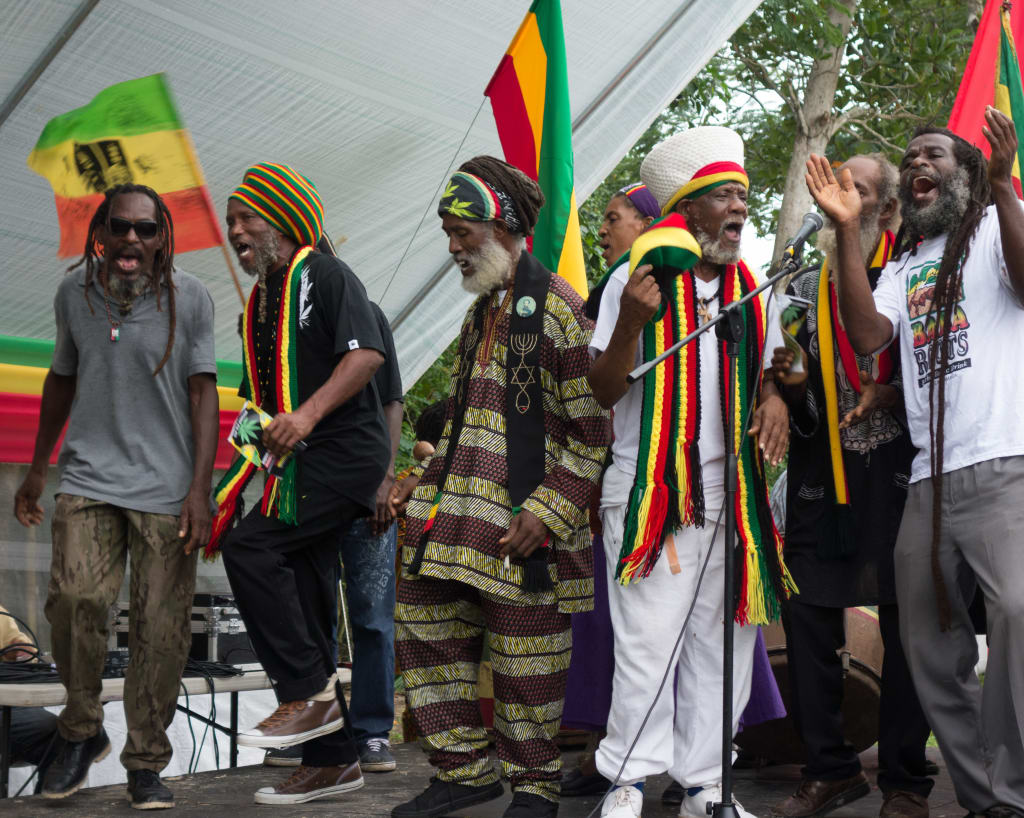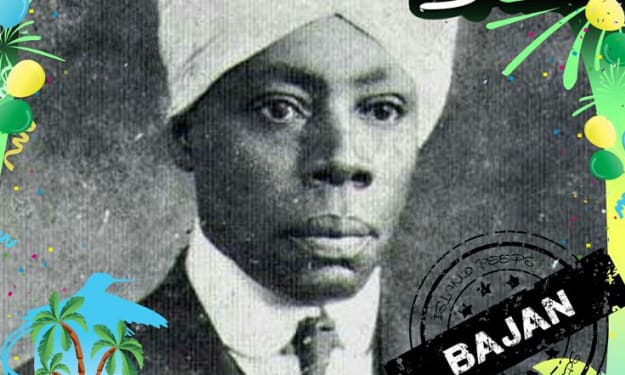The Future of the Rastafarian Movement: Trends and Perspectives in Modern Times
Exploring the challenges and opportunities for the Rastafarian movement in a rapidly changing world

Rastafarianism is a religious and cultural movement that originated in Jamaica in the early 20th century. It is deeply rooted in African heritage and is centered around the belief in the divinity of Haile Selassie I, the former emperor of Ethiopia. The movement is known for its unique beliefs, practices, and cultural expressions such as reggae music, the use of marijuana, and the wearing of dreadlocks.
As the Rastafarian movement continues to evolve and adapt to modern times, it is important to discuss its future and the challenges it faces. This blog post will explore the current trends and challenges facing the Rastafarian movement, as well as various perspectives on its future direction and opportunities. The post will also provide insights on how individuals can support and contribute to the growth and development of the movement.
Current Trends and Challenges Facing the Rastafarian Movement
Globalization and commercialization: With the increasing globalization of culture and commerce, the Rastafarian movement has become more visible and accessible around the world. However, this increased exposure has also led to the commercialization and exploitation of Rastafarian culture, particularly in the fashion and music industries. This trend poses a significant challenge to the authenticity and integrity of the movement.
Mainstream cultural appropriation: The mainstream culture has appropriated several aspects of Rastafarian culture, including dreadlocks, reggae music, and the use of marijuana. This appropriation has resulted in a dilution of the movement's significance and its connection to African heritage.
Generational divides and cultural assimilation: The Rastafarian movement has struggled to retain its cultural identity and practices among younger generations who are increasingly exposed to Western culture and values. The younger generation's assimilation into mainstream culture has caused a divide between the older and younger generations of Rastafarians.
Impact of technology and social media: The proliferation of technology and social media has transformed how people interact and communicate, including Rastafarians. While these tools have facilitated the spread of Rastafarian ideas and culture, they have also posed challenges to the authenticity and traditional practices of the movement.
The current trends and challenges facing the Rastafarian movement must be addressed for the movement to continue to thrive and adapt to the changing times. The movement's leaders and followers must come together to navigate these challenges while remaining true to the movement's core values and beliefs.
Perspectives on the Future of the Rastafarian Movement
Embracing technology and social media: While technology and social media have posed challenges to the Rastafarian movement, they also present opportunities for growth and outreach. The movement can leverage these tools to reach wider audiences, build communities, and promote its values and beliefs.
Revitalizing traditional practices and beliefs: To address the challenge of cultural assimilation and generational divides, the Rastafarian movement can focus on revitalizing its traditional practices and beliefs. This can involve strengthening ties with African heritage, promoting cultural education, and preserving traditional practices such as drumming and chanting.
Creating sustainable economic opportunities: The Rastafarian movement can create sustainable economic opportunities for its members through initiatives such as organic farming, reggae music production, and artisanal crafts. These initiatives can provide economic stability while also promoting the values and beliefs of the movement.
Increasing education and awareness of the movement's values and history: To combat cultural appropriation and commercialization, the Rastafarian movement can focus on educating the public on its history, values, and beliefs. This can involve creating educational programs, cultural events, and outreach efforts to promote awareness and understanding of the movement's significance.
These perspectives provide a roadmap for the Rastafarian movement to adapt and thrive in modern times while remaining true to its core values and beliefs. By embracing technology, revitalizing traditional practices, creating sustainable economic opportunities, and promoting education and awareness, the movement can continue to inspire and impact individuals around the world.
Future Directions and Opportunities for the Rastafarian Movement
Advancing social justice and human rights: The Rastafarian movement has a long history of activism and advocacy for social justice and human rights. Moving forward, the movement can continue to be a powerful force in addressing issues such as racism, inequality, and oppression. This can involve supporting community-based organizations, engaging in grassroots activism, and advocating for policy change.
Promoting environmental sustainability and activism: Environmental sustainability is an increasingly pressing issue, and the Rastafarian movement can play a key role in promoting ecological consciousness and activism. This can involve initiatives such as promoting sustainable agriculture, reducing waste, and protecting natural resources.
Supporting education and community development: Education and community development are essential components of the Rastafarian movement, and they will continue to be important in the future. The movement can support initiatives such as promoting literacy, creating vocational training programs, and building community centers.
Fostering global connections and collaborations: The Rastafarian movement has a global presence, and there are opportunities for the movement to build connections and collaborations across regions and cultures. This can involve cultural exchange programs, collaborations with other social justice movements, and international outreach and advocacy.
These future directions and opportunities provide a framework for the Rastafarian movement to continue to grow and evolve in the years to come. By advancing social justice and human rights, promoting environmental sustainability, supporting education and community development, and fostering global connections and collaborations, the movement can continue to make a positive impact on individuals and communities around the world.
Conclusion
The Rastafarian movement has a rich history and a vibrant culture that continues to evolve in the modern world. While the movement faces challenges such as globalization, cultural appropriation, and generational divides, there are also opportunities for growth and development. By embracing technology and social media, revitalizing traditional practices, creating sustainable economic opportunities, increasing education and awareness, advancing social justice and human rights, promoting environmental sustainability, supporting education and community development, and fostering global connections and collaborations, the Rastafarian movement can continue to make a positive impact on individuals and communities around the world.
As individuals, we can support and contribute to the growth and development of the Rastafarian movement in a number of ways. This can involve learning about the history and values of the movement, supporting Rastafarian-owned businesses and organizations, engaging in advocacy and activism, and participating in cultural exchange programs. By working together, we can help to create a more just, sustainable, and compassionate world.
Final Note
If you’re interested in exploring who is Jah further, we invite you to check out Fifth Degree’s collection of Rastafarian clothing. Our clothing is designed to reflect the spirit and teachings of Rastafarianism, with bold colors, empowering messages, and a commitment to sustainability and ethical production. We believe that what you wear can be a powerful expression of your values and beliefs, and we’re proud to offer a range of high-quality, stylish, and socially conscious clothing for individuals who are seeking to live in harmony with nature and the divine. Visit our website today to learn more about our collection and find the perfect Rastafarian clothes for woman for you.
About the Creator
Enjoyed the story? Support the Creator.
Subscribe for free to receive all their stories in your feed. You could also pledge your support or give them a one-off tip, letting them know you appreciate their work.






Comments
There are no comments for this story
Be the first to respond and start the conversation.